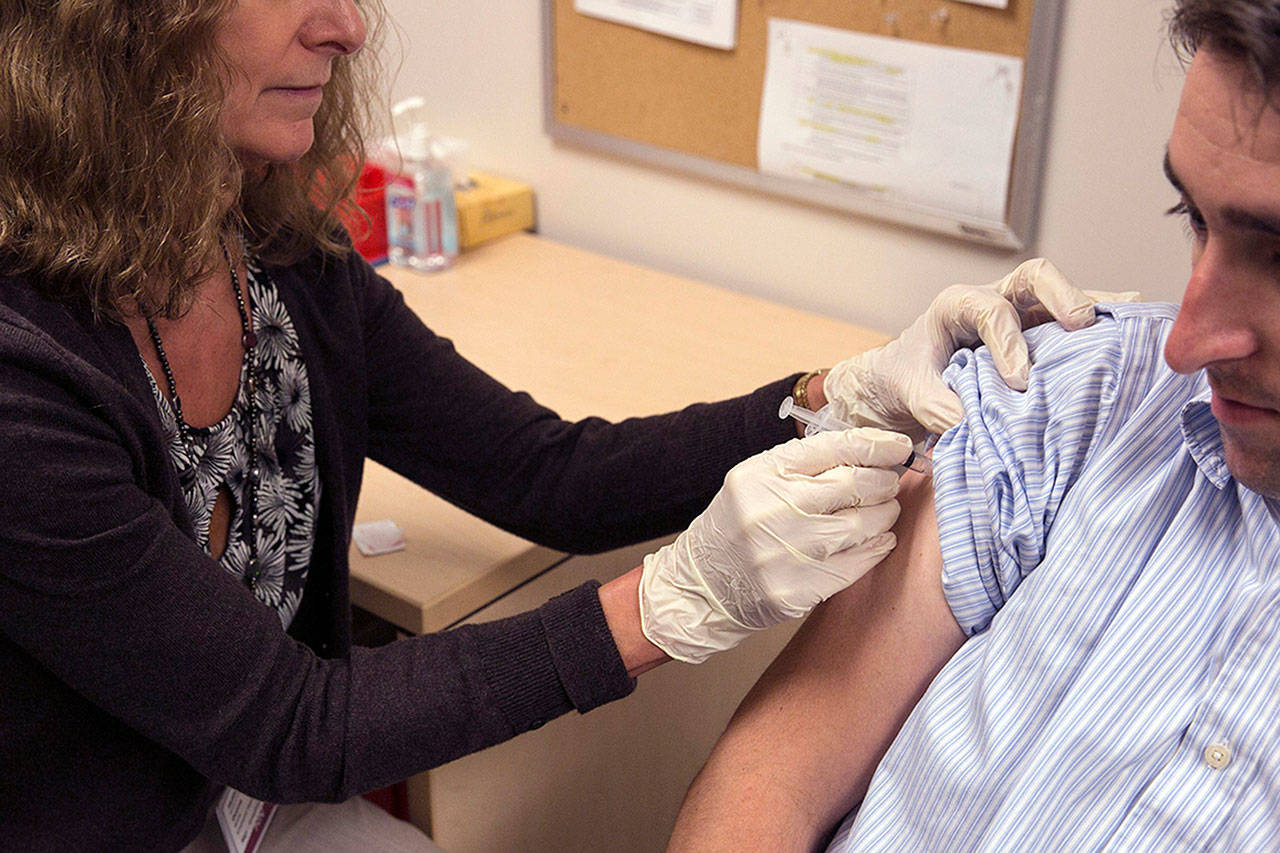Measles is highly contagious. If you think you or your child has the measles, or may have been exposed to the measles, and need care, please call your doctor or clinic before you go so they can advise you on how they can best care for you. Do not arrive at your doctor’s office, urgent care or other walk-in clinic unannounced, as this may spread measles to others.
Measles, a highly contagious respiratory virus that causes a distinctive rash, continues to appear in the news. Clark County, located in southern Washington, is experiencing a measles outbreak with 53 confirmed cases as of Feb. 14. One case has also been reported in King County.
Washington Gov. Jay Inslee declared a state of emergency Jan. 25.
Despite this outbreak, measles is still rare in the United States thanks to the large number of people who have been vaccinated against the virus and are protected.
Measles is spread through the air and causes fever, a runny nose, cough and a rash all over the body. It’s a serious disease and can also cause problems such as diarrhea, ear infections, pneumonia and permanent brain damage.
The measles virus can remain in the air for several hours, and is so contagious, according to the Centers for Disease Control (CDC), that 90 percent of the people close to a person who has it will likely get sick, unless they are immune.
Although often described as a “childhood” disease, anyone can get sick from measles.
Complications are more common in children under five and adults older than 20. Measles can be especially severe in people with weak immune systems.
In severe cases, measles can result in pneumonia, or cause other complications requiring hospitalization. Pregnant women who get measles are at a higher risk for premature labor, miscarriage and low-birth-weight babies.
Vaccination is the only way to protect yourself from measles. The measles (MMR) vaccine is safe and effective and provides lifetime protection — no booster shots needed.
To be fully protected, you must get two doses of the measles vaccine. The first vaccine is usually given to babies between 12 and 15 months, and the second dose is given when children are between 4 and 6 years old. Babies under a year old can’t get the vaccine, so they are especially vulnerable to infection if exposed.
Getting the measles vaccine within 72 hours after exposure may stop a person who was not fully vaccinated from getting sick. Unvaccinated, high-risk individuals, such as infants who are too young to get the vaccine, may be given another type of medication called immune globulin to help protect them from infection if exposed.
If you’re not sure whether you’re protected from measles, talk to your provider.
If you need a measles vaccination, make an appointment with your primary care provider, pediatric provider or a walk-in clinic that offers the vaccine. Call ahead to confirm availability of the vaccine.
MultiCare Health System is a not-for-profit health care organization with more than 18,000 employees, providers and volunteers.


